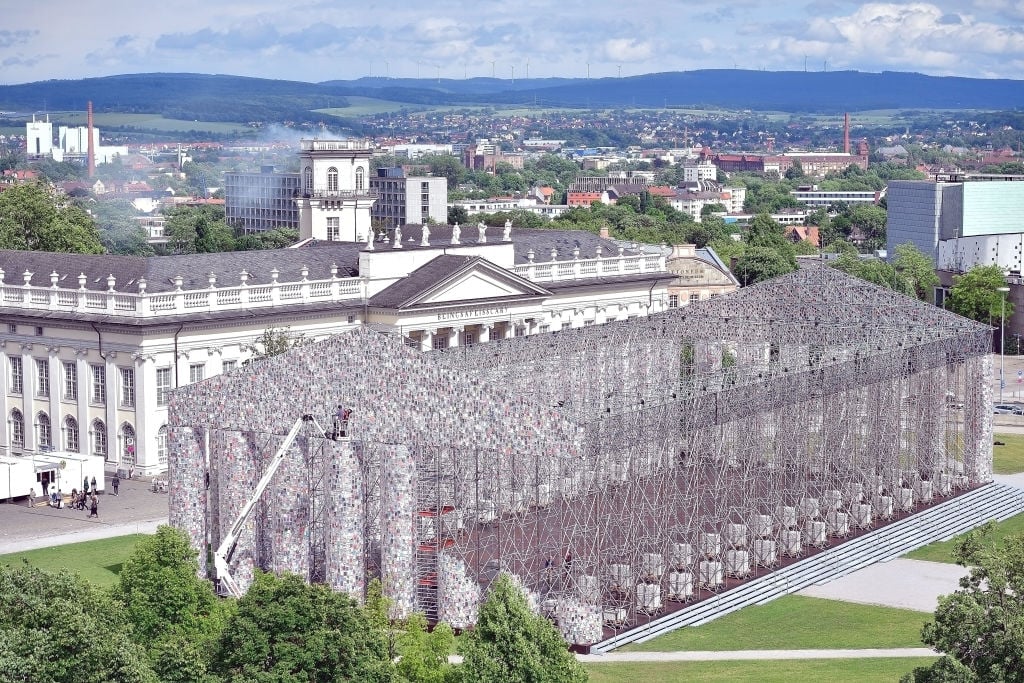
Responding to allegations of financial mismanagement, Adam Szymczyk and documenta’s curatorial team issued an explosive joint statement defending their administration of the world-famous quinquennial exhibition after the event’s parent company had to be saved from the brink of bankruptcy by an emergency loan from the state.
The statement—which was signed by the artistic director and 19 other curators—blamed local politicians for suggesting documenta was on the verge of collapse for political expediency. The accusations are hefty, considering that the city of Kassel and German state of Hesse jointly control documenta’s parent company.
“Unfortunately, politicians have prompted the media upheaval by disseminating an image of imminent bankruptcy of documenta and at the same time presented themselves as the ‘saviors’ of a crisis they themselves allowed to develop,” they wrote.
The curators defended their administration of the event, pointing out that they successfully put together a tremendously complex exhibition across two international cities, and that it ran 63 more days longer the previous edition of documenta in 2012—despite doing all this with a budget that was largely unchanged from five years ago. Additionally they say the politicians were aware of and supported the dual-city plan that is said to have swallowed up the bulk of the budget.
The statement rejected accusations that the organizers irresponsibly spent taxpayer money, arguing that the value of artistic and cultural production enabled by documenta cannot be measured in financial terms.
And even if it were, they contended, “The money flowing into the city through the making of documenta greatly exceeds the amount the city and region spend on the exhibition.” The statement cites no figures to support this claim.
The curators go on to criticize the monetization of large-scale cultural events within the contemporary art system. Exhibitions like documenta shouldn’t be about money, they say, but free independent artistic expression.
In their view, “The expectations of ever-increasing success and economic growth not only generate exploitative working conditions but also jeopardize the possibility of the exhibition remaining a site of critical action and artistic experimentation.”
They went on to ask: “How can the value production of documenta be measured?” This question may be at issue when Kassel and the state of Hesse meet on September 25 to decide whether to assist the overdrawn exhibition with an injection of €7 million.